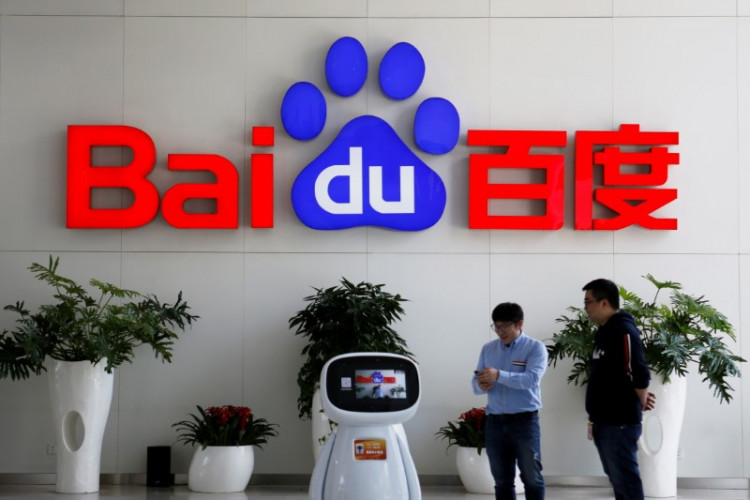Riding high on the AI trend, Goldman Sachs maintains a bullish stance on Baidu and includes it in their strong buy list.
On July 16, Goldman Sachs, in its latest research report, reconfirmed its buy rating for Baidu and added it to their Regional Conviction Buy list. They adjusted the target price for the next 12 months from $183 to $197, and the Hong Kong stock target price from 179 Hong Kong dollars to 193 Hong Kong dollars.
Goldman Sachs analyst Lincoln Kong stated that Baidu, one of the most powerful companies in China's generative AI sector, would be a significant gateway to future AI applications. Kong predicts that only a few companies will dominate China's general-purpose large language model, becoming significant traffic portals, with internet giants in a favorable position.
These internet behemoths have emerged as pioneers of large language models, like Baidu's Wenxin Yuyan and Alibaba Cloud's Tongyi Qianwen. Their principal advantage lies in their ToC traffic sources, integrating large language models into their natural application scenarios, extending user scenarios to chatbots/personal assistants.
#Baidu's Moat in Model Development
Goldman Sachs believes that there is still room for the valuation of Baidu, a company they have continually held in high regard for its profitability potential, to grow:
"We anticipate Baidu's multi-year investment in AI will aid future revenue growth and expansion of profitability."
Goldman Sachs asserts that Baidu, a leader in China's AI field, has made several years' worth of investments in large language models (Baidu was the first company in China to launch a ToC chatbot, and the birth of the Wenxin large model can be traced back to March 2019). It is expected to benefit long-term from the development of generative AI, and its AI products are continually evolving, boasting a unique four-layer technology stack advantage.
The emergence of large models has shifted the entire technology stack architecture of the IT industry. Prior to the AI era, the IT technology stack was a three-tier architecture: the chip layer, the operating system layer, and the application layer. However, when the AI era dawned, the technology stack shifted to a four-tier architecture: the chip layer, the framework layer, the model layer, and the application layer.
Since 2010, Baidu has been fully committed to AI and is among a small number of global companies pursuing a full-stack AI layout.
Identifying data, algorithms, and computational power as the three pillars of AI development, Goldman Sachs believes that computational power is the bottleneck for large model development for Chinese internet companies. This bottleneck, however, has created opportunities for internet cloud operators to elevate their cloud market positioning, and Baidu, with its GPU inventory advantage, stands to gain.
Baidu's computational power, coupled with end-to-end optimization of the four-tier IT architecture, has built a formidable moat for its large model development.
Goldman Sachs pointed out that, according to data from the China Academy of Information and Communications Technology, China's cloud computing market is projected to reach 380 billion yuan ($59 billion) in 2023. The market will "witness" the potential for Baidu's AI cloud services to monetize (through the provision of API tokens, basic model access, application tools, etc.), and in consumer usage scenarios, such as search, see the potential for monetization:
The company has begun exploring the possibility of embedding large models into different ads. Ad revenue is also expected to further benefit from the development of the intelligent cloud.
According to Baidu's Q1 2023 financial report, the intelligent cloud saw an 8% revenue increase, turning a profit for the first time in eight years, becoming one of the key drivers for Baidu's overall profit surge. Additionally, in March, with the launch of Wenxin Yuyan, Baidu's intelligent cloud sales leads increased by over 400% year-over-year, which is expected to translate into revenue growth for Baidu's intelligent cloud in the coming quarters.
Interestingly, Morgan Stanley also raised Baidu's rating to "overweight" and increased the target price by $30 to $190, suggesting that with the help of artificial intelligence, Baidu could see a 31% increase.
Morgan Stanley analyst Gary Yu previously noted that Baidu would benefit the most in the process of AI tools aiding China's $7.4 trillion consumer market transition from offline to online:
"Baidu is the most apparent beneficiary of the increase in China's AI applications," the company possesses in-depth expertise in autonomous driving, generative AI models, and proprietary search data.
The market has yet to affirm the AI innovations of Chinese internet platforms. Demand for Baidu's Wenxin Yuyan has been consistently strong, with over 200,000 people already registered for the tool. Baidu is expected to be one of the first companies to receive a commercial license for generating AI content.
Overnight in the U.S. stock market, Baidu rose 0.3% to $149.66, still offering a 31.6% upside to Goldman Sachs' target price of $197. So far this year, Baidu's U.S. stock has already risen approximately 30%.






